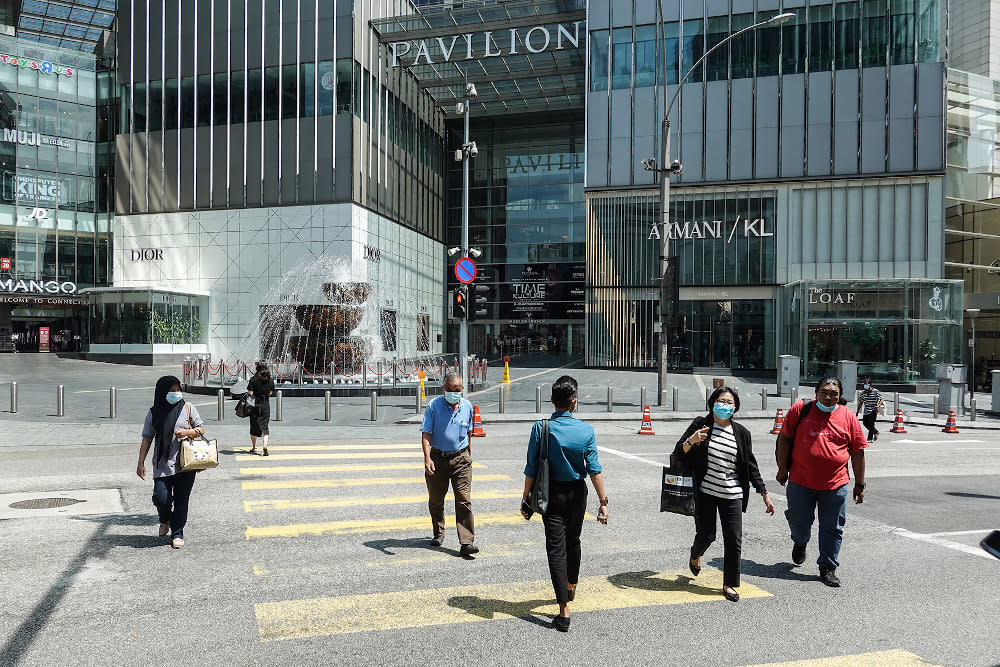Covid-19 economic blues heighten fears of job security and unemployment among Malaysian workers, study finds

KUALA LUMPUR, Oct 22 — The spectre of economic uncertainty and a global recession due to the Covid-19 pandemic has resulted in nearly a quarter of employees in Malaysia fearing job insecurity, a new study has revealed.
The survey by market research agency YouGov, which polled 665 full-time workers, revealed their fear of losing jobs has increased to 25 per cent, in comparison to 5 per cent prior to Covid-19.
With the national unemployment rate currently at the highest point in the past three decades, the survey also indicated that seven in 10 believe it will be hard to find another job in the face of unemployment.
Six per cent of respondents feel “very insecure”, with 19 per cent feeling “somewhat insecure”; 18 per cent feel neither secure nor insecure, and almost three in 10 or 57 per cent feel secure in their jobs.
Middle-income earners whose monthly household income ranges between RM4,000 and RM7,999 are the most likely to feel secure in their jobs, whereas low-income earners with a monthly household income of less than RM4,000 a month are the least likely to say the same.
Up to 92 per cent of employed Malaysians are experiencing some level of stress over losing their jobs, with only a small number of 8 per cent feeling “not at all stressed”.
In comparison, 23 per cent feel a little stressed, less than 47 per cent feel somewhat stressed, and about 23 per cent feel very stressed.
As a result, those who are feeling “very insecure” about their jobs are the most likely to feel very stressed, with 44 per cent saying so, as opposed to 14 per cent who say they feel “very secure”.
When asked about the possibility of losing their job tomorrow, 71 per cent believe it will be difficult to find another one with a similar pay and attendant benefits, 40 per cent think it will be “somewhat difficult”, and 31 per cent think it will be “very difficult”.
Those who are indifferent stand at 18 per cent, and the remaining 7 per cent would find it easy. However, all income groups appear to find it equally difficult to find another job.
Twenty-eight per cent believe they will be able to find a new job within three months should they find themselves unemployed tomorrow, while 18 per cent think this will be between three and six months, and 23 per cent believe this will be between six months and a year.
Similarly, 15 per cent think it will take longer than a year to find another job, and the remaining 15 per cent are unsure.
Given the fear of losing one’s jobs, many employees say they are willing to undergo a pay cut if it means they can get another job with a similar position.
Forty-one per cent of respondents said they are willing to take a pay cut of up to 20 per cent for that purpose, while 20 per cent of respondents said they are willing to take a pay cut between 21 and 40 per cent, and 13 per cent of respondents said they are willing to take a pay cut of 40 per cent and above.
Between earning power, low-income earners are the most willing to take a pay cut of more than 40 per cent. while high-income earners are the least willing. A quarter of the respondents are unwilling to take any sort of pay cut, with men less willing to take a pay cut than compared to women.
Related Articles Covid-19: Malaysian NGO founder awarded the Silk Road Youth Outstanding Contribution Award for fight against pandemic Covid-19: After losing job due to MCO, Malaysian man starts career coaching classes to help graduates get jobs For transparency’s sake, name public places where Covid-19 cases were detected — Centre for Independent Journalism



